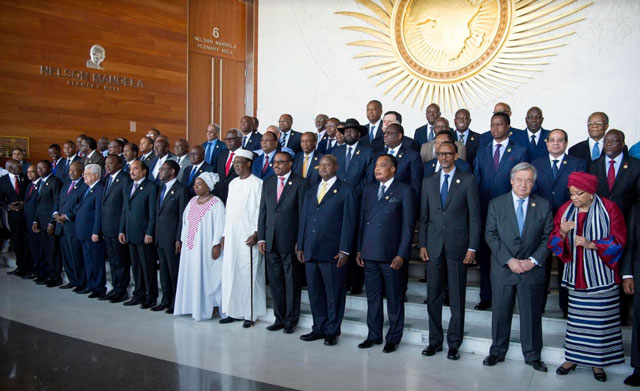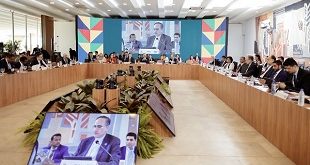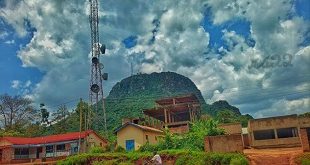
Are Kagame’s proposals to fellow African leaders too bitter a pill for them?
By Gerald Mbanda
The Rwandan President Paul Kagame, during the recent 28th African Union (AU) Summit in Addis Ababa, presented recommendations for the institutional reform of the African Union. He told his fellow leaders that these would enable establishment of a system of governance that is effective in tackling challenges facing the continental body.
President Kagame was given the assignment by fellow heads of state and government during the 27th AU summit held in Rwanda in July 2016.
The reform formulating process was hailed by many as something that should have taken place many years ago, but better late than never. In as much as the 27th AU summit held in Rwanda in July 2016 adopted the Kigali Declaration with a formula on how to raise required financing for the AU, and do away with external dependence, almost eight months down the road, little progress has been realised with less than 5% of member countries said to have initiated the process with only four months left to start implementation of the proposed self-reliance funding mechanism!
Freedom has a cost; therefore, AU member states have to agree to make sacrifices to raise the required financial contributions.
Rwanda has already put in place a law that will enable the country to collect her contribution to the AU through tax levy on imports.
A law maker in the region observed recently that “the speed at which Rwanda implements key decisions is the source of the country’s rapid development and transformation and Kagame is leading the AU reform by example”. This probably was the reason behind the 27th AU summit to have their trust in the Rwandan president to prescribe a medicine for a seemingly chronic ailment called Africa’s Foreign Aid Dependence (AFrAID).
Currently, 74% of the AU funding is sourced from donors, while an estimated 30% of member countries are sadly said to be defaulting on their contributions either in part or in totality. This, therefore, makes the AU not able to fund its activities. The proposals in the Kigali Declaration, if implemented, will enable the AU raise US$1.2 billion which is beyond the required annual budget of US$782 million. The problem of Africa is not about lack of resources, but rather more about lack of commitment and a right sense of ownership of the AU by member states.
To quote President Kagame’s AU reform proposal adopted among key decisions of the 28th AU summit: “The African Union stands at yet another crossroads in its history. It can carry on down the same road or change direction to become more relevant. The decision to change lies with the leaders. It is time to guarantee our citizens a continent in which they can thrive”. This is a very powerful statement given the fact that much of Africa’s problems are largely self-inflicted through weak leadership and absence of governance that is accountable. Good intentioned decisions for the betterment of the African citizens are taken, yet their implementation never takes place or when it happens it is at snail’s speed. Furthermore, the AU member states do not fulfill their obligation of financial contribution, making the continental body look like a child neglected by its parents. Unless African leaders take the mantle to reverse this trend, the African continent will remain trapped at the bottom of the global economy and the international governance system.
According to Corruption Perception Index (TI 2016), 50% of ten most corrupt countries in the world are on the African continent, a position consistently held since 2014. Countries like Denmark and New Zealand which are the least corrupt countries in the world, vest safeguards against corruption and abuse of power mainly in a strong belief in integrity rather than formal rules. The big question here is; what prevents African leaders and others in positions of authority from living with the right morals?
The African continent loses billions of dollars annually due to poor governance and corruption. Taking a few examples, between 2012 t0 2013, studies indicate that Nigeria lost US$6.8billion, Angola $4.2billion, while The Democratic Republic of Congo (DRC), lost $1.3 billion in underpriced mine privatisation deals, an amount more than double of what was spent on health and education combined.
A country like Kenya, which finances more than 90% of her state budget, with an estimated GDP of $74.7Billion, but ranked 145th out 176 countries in terms of corruption, can easily become a donor to other African countries if it curbed corruption. If the AU takes serious measures to fight corruption, then it is possible for Africa to stop the donor dependence syndrome.
 The Independent Uganda: You get the Truth we Pay the Price
The Independent Uganda: You get the Truth we Pay the Price



